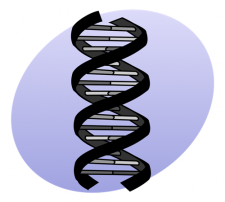CGS-authored

Scientists in Sweden have become the first to edit the genetic material in healthy human embryos, but what exactly are these researchers editing and why is the research so controversial?
In recent experiments, biologist Fredrik Lanner, of the Karolinska Institute in Stockholm, and his colleagues injected human embryos with a gene-editing tool intended to make very precise changes to the embryo's DNA, according to NPR, which first reported the news. This was done at a very early stage in development, just a few days after fertilization.
The researchers said they hope the experiments will help them learn about early development in embryos, and perhaps one day lead to new methods for treating infertility and preventing miscarriages.
Here are five key facts to know about the research:
This isn't the first time scientists have edited a gene in human embryos
In 2015, scientists in China published a study in which they had tried to make changes in human embryos, specifically on a gene involved in the blood disorder beta thalassemia. A year later, another research group in China tried to edit DNA...



